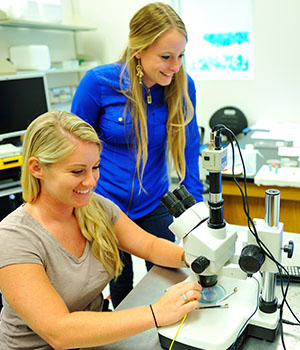

Since the origin of life, organisms have been exposed to dynamic and unpredictable environments that have bred adaptations to buffer internal physiological functioning from external fluctuations. The evolution of complex nervous systems, and the behaviors they subserve, has played a fundamental role in shaping mechanisms for maintaining homeostasis in the face of environmental perturbations. Adapted animals, such as insects, employ genetic, molecular, and physiological strategies to prevent specific neurological pathologies resulting from stressors such as low oxygen (anoxia), high temperatures (hyperthermia), and high levels of free radicals (oxidative stress). My research program is poised to take advantage of this through the use of a genetically tractable model system, the fruit fly Drosophila melanogaster. In the recent past Drosophila has been used to successfully model a number of human disorders such as Alzheimer's, Parkinson's and obesity. Advantages of the fruit fly include its short life-cycle, high fecundity, sequenced genome and amenability to genetic manipulation. Such characteristics, combined with a general conservation of cellular processes between flies and humans, make Drosophila an ideal system to study cellular pathways associated with neural failure following severe trauma, and to develop novel therapies targeting molecules that contribute to neural dysfunction and cell death/damage. Our goal is to develop novel methods for maintaining both neural function and survival during such instances.
To learn more about research in the Dawson-Scully lab, listen to his interview with People Behind The Science Podcast: The Science Behind the Survival Skills of Cells Under Stress.


